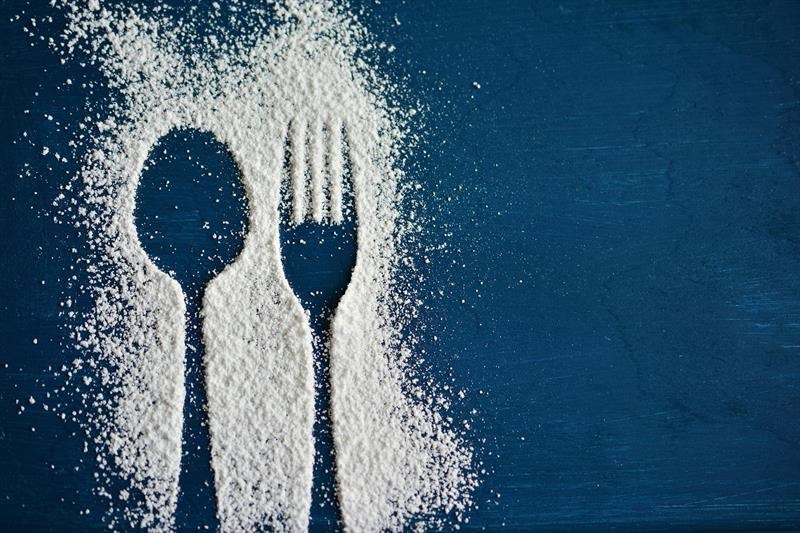Ban misleading '1 of your 5 a day' claims on so-called healthy snacks
Published: 16/09/2020
Health experts are calling for the government to ensure so-called 'healthy' fruit snacks for children are labelled properly.
This comes after worrying new data reveals they can contain nearly as much as 5 teaspoons of sugars per serving.
The Action for Sugar group is also calling for a ban on the use of misleading claims, such as '1 of your 5 a day', 'naturally occurring sugars' or 'made from real fruit'.
All products surveyed would have received a RED traffic light front of pack label for HIGH sugars, meaning they are not a healthy snack choice.
Many are wrongly advertised as ‘snacks’ despite guidance that children should not consume these products in between meals and that they are banned from schools because they are considered ‘confectionery’.
With current labelling based on total sugars (i.e. free sugars found in processed fruit, table sugar, honey etc as well as sugars from unprocessed fruits, vegetables and milk that are not harmful) – many parents are mistakenly buying these processed fruit snacks assuming they contribute less of the ‘unhealthy’ sugars than they actually do.
What’s more, the current labelling gives an ‘allowance’ of 90g of sugars per person which is based on an adult’s intake and not a child’s.
Whilst these claims are legal, they have been shown to be misleading by creating a ‘health halo’ and discouraging shoppers from scrutinising the label more thoroughly.
Extrusion is used in food processing, mechanically shaping soft mixed ingredients to produce the required shape.
For example, Tesco Apple & Sultana Bars claim to be 20% of your daily intake of sugars when in fact at 18.4g, they contain nearly 5 teaspoons of free sugar, nearly the recommended daily maximum allowance for a 4-6-year-old in just one bar.
Analysing the wider data, of the 56 coated, flavoured, processed or extruded fruit-based products sold across leading grocery retailers:
- A whopping 57% of products have more free sugars than Haribo Starmix confectionary per 100g – with one product (Kiddylicious Apple Fruit Wriggles 12g) made of 70% sugars
- 65% had the equivalent of 2 teaspoons of sugars or more in just one single portion – the same as eating an iced doughnut1.
- ALL products surveyed would receive a RED traffic light label for HIGH sugars
Examples of high sugars fruit snacks:
Product Name & Pack Size | Sugars (g) per 100g | Sugars (g) per serving | Equivalent teaspoons* of sugar per serving** |
Kiddylicious Apple Fruit Wriggles 12g | 70 | 8.3 | 2.1 |
Tesco Apple & Sultana Bars 5 x 30g | 61.2 | 18.4 | 4.6 |
Organix Blackcurrant & Apple Stars 12g | 65 | 7.7 | 1.9 |
The Fruit Factory Strawberry, Apple, Orange Fruit Stars 5 x 20g | 61.8 | 12.4 | 3.1 |
Fruit Bowl Strawberry Peelers 5 x 16g | 58 | 9.3 | 2.3 |
* 4 grams of sugar (granulated) is equal to 1 teaspoon of sugar.
** serving size as stated on product packaging
When comparing fruit snack products from Action on Sugar’s 2015 survey to all available comparable products, these new findings have shown that whilst progress has been made in reducing the overall sweetness in certain products by using vegetables as well as fruit, some now worryingly appear to be HIGHER in free sugars than in 2015.
Examples of products that have increased in sugar since 2015:
Product Name & Pack Size | Sugars (g) per 100g in 2015 | Sugars (g) per 100g in 2020 |
Kiddylicious Apple Fruit Wriggles 12g | 60.6 | 70.0 |
Organix Blackcurrant & Apple Stars 12g | 62.8 | 65.0 |
The Fruit Factory Strawberry, Apple, Orange Fruit Stars 5 x 20g | 47.2 | 61.8 |
The popular Bear products have made reductions across all comparable products (an average of around 16% lower than in 2015) which is to be applauded. However, the use of several health claims on their packaging, and lack of traffic light labelling (for which they would still get a ‘red’ for high sugars), means they are still being sold under a misleading health halo.
As the latest figures (announced last month) by the Local Government Association showed nearly 45,000 hospital operations were performed to remove rotten teeth, this is a stark reminder that too much sugar in children's diets can have dire consequences – with many suffering agonising pain and emotional suffering all at very young ages. What’s most concerning is this is all entirely preventable.
Commenting on the move, Dr Saul Konviser from charity, Dental Wellness Trust said: 'These so-called "healthy" fruit snacks can bind and trap sugars on and around the tooth making children’s teeth more susceptible to tooth decay – especially as they are less likely to floss or brush their teeth – which are also much thinner in density. Whilst these fruity snacks may be convenient, they are not a healthy option – nor tooth friendly.'
Author: Julie Bissett












.jpg?width=150&height=100&scale=canvas)
